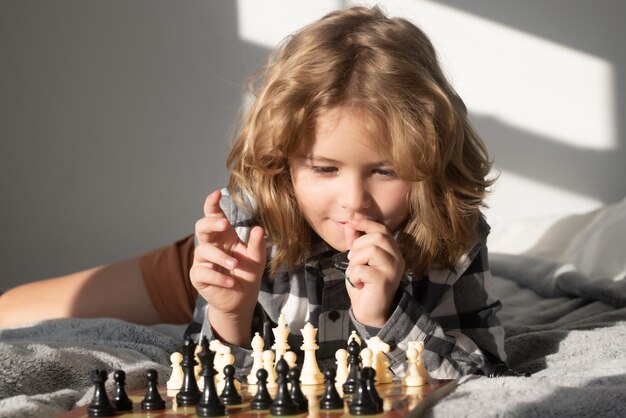Chess is more than just a game; it’s a powerful tool that aids in the cognitive development of children. While often recognized for sharpening strategic thinking, it also promotes a wide range of mental skills, from improving memory to fostering patience and discipline. The mental exercise involved in learning chess not only enhances a child’s brainpower but also encourages a love for intellectual challenges that can benefit them throughout their lives.
In this article, we’ll explore how learning chess can positively impact brain development in children, focusing on cognitive growth, emotional regulation, and academic performance.
Enhancing Memory and Concentration
One of the most immediate benefits of learning chess is its ability to improve memory and concentration. Chess players must memorize rules, patterns, and potential moves while maintaining focus throughout the game. For children, this mental exercise is invaluable.
Short-Term Memory Boost: When a child plays chess, they need to remember their opponent’s last move and anticipate future moves, relying heavily on short-term memory. This constant mental engagement helps strengthen neural pathways responsible for storing and recalling information. By playing chess regularly, children improve their ability to process and retain information, a skill that translates directly into better performance in school, particularly in subjects that require memorization, like history or vocabulary.
Improving Concentration: Concentration is key in chess, where a moment of distraction can lead to defeat. Children who regularly play chess become more adept at maintaining focus over longer periods. This enhanced ability to concentrate is highly beneficial in an academic setting, where children often need to stay focused during class, complete homework assignments, and study for exams without getting distracted.
Fostering Critical Thinking and Problem-Solving
Chess is a game of strategy, requiring players to think several moves ahead and anticipate their opponent’s actions. This constant need to plan, evaluate, and adapt encourages the development of critical thinking and problem-solving skills.
Strategic Thinking: One of the core skills learned through chess is strategic thinking. Players must evaluate their current position, anticipate potential threats, and decide on the best possible move. For children, learning to think strategically helps improve decision-making skills, teaching them to assess situations carefully before acting.
Problem-Solving Under Pressure: In chess, the pressure to make the right move while managing time constraints can simulate real-life situations where children need to solve problems quickly and efficiently. By playing chess, children learn how to stay calm under pressure and think clearly, even when faced with challenging circumstances.
Boosting Emotional Regulation and Patience
Chess is not just a test of intellect but also a lesson in emotional regulation. The game teaches children how to manage their emotions, both in moments of success and failure. These emotional skills are crucial for overall brain development and mental well-being.
Patience: Chess is a slow-paced game that rewards careful consideration over impulsive action. Children quickly learn that rash decisions often lead to mistakes, and that patience is key to success. The ability to take their time and think before acting can help children in other aspects of life, from schoolwork to interpersonal relationships.
Handling Wins and Losses: Winning and losing are integral parts of chess, and learning to handle both with grace is a critical life skill. For children, learning to manage the emotional highs of winning and the lows of losing helps develop emotional resilience. This skill is especially valuable in competitive environments, such as sports or academic settings, where children need to remain level-headed and positive, regardless of the outcome.
Chess and Academic Performance
Research shows that playing chess can have a direct positive impact on academic performance, particularly in subjects like mathematics and reading. The cognitive skills developed through chess are transferable to these subjects, leading to improved test scores and a deeper understanding of the material.
Mathematics: Chess and math share many similarities, particularly in the realm of logic and problem-solving. Chess requires players to think logically and use spatial reasoning, skills that are essential for solving mathematical problems. Studies have shown that children who learn chess often show significant improvement in their math scores, as the game helps them develop a better understanding of patterns, calculations, and geometry.
Reading Comprehension: The problem-solving and analytical skills developed through chess also translate into improved reading comprehension. Chess players learn to analyze complex situations and draw conclusions based on limited information, a skill that is directly applicable to understanding and interpreting texts.
The Role of Chess in Developing Social Skills
While chess is primarily a mental exercise, it also offers social benefits that contribute to a child’s overall development. Playing chess with others, whether in school clubs, tournaments, or casual games with friends, teaches children valuable interpersonal skills.
Communication: Chess requires clear communication, particularly when discussing moves or strategies with peers or coaches. Children learn to articulate their thoughts, explain their reasoning, and listen to others’ perspectives, all of which are essential skills for effective communication.
Sportsmanship: Chess also teaches children about fairness and respect. In a competitive setting, children learn to be gracious in victory and humble in defeat, cultivating good sportsmanship. These qualities are vital for healthy social interactions, both in and out of school.
Why Every Child Should Learn Chess
Chess is an incredible tool for brain development, offering numerous benefits that extend beyond the chessboard. From enhancing memory and concentration to fostering critical thinking and emotional regulation, the game provides children with the skills they need to succeed academically and socially. Introducing children to chess at a young age can set them on a path toward lifelong cognitive growth and intellectual curiosity. For parents and educators looking for a fun yet intellectually stimulating activity, encouraging children to learn chess is a decision that can benefit them for years to come.
By incorporating chess into their daily routine, children not only gain a new hobby but also develop essential life skills that contribute to their overall development and success.







